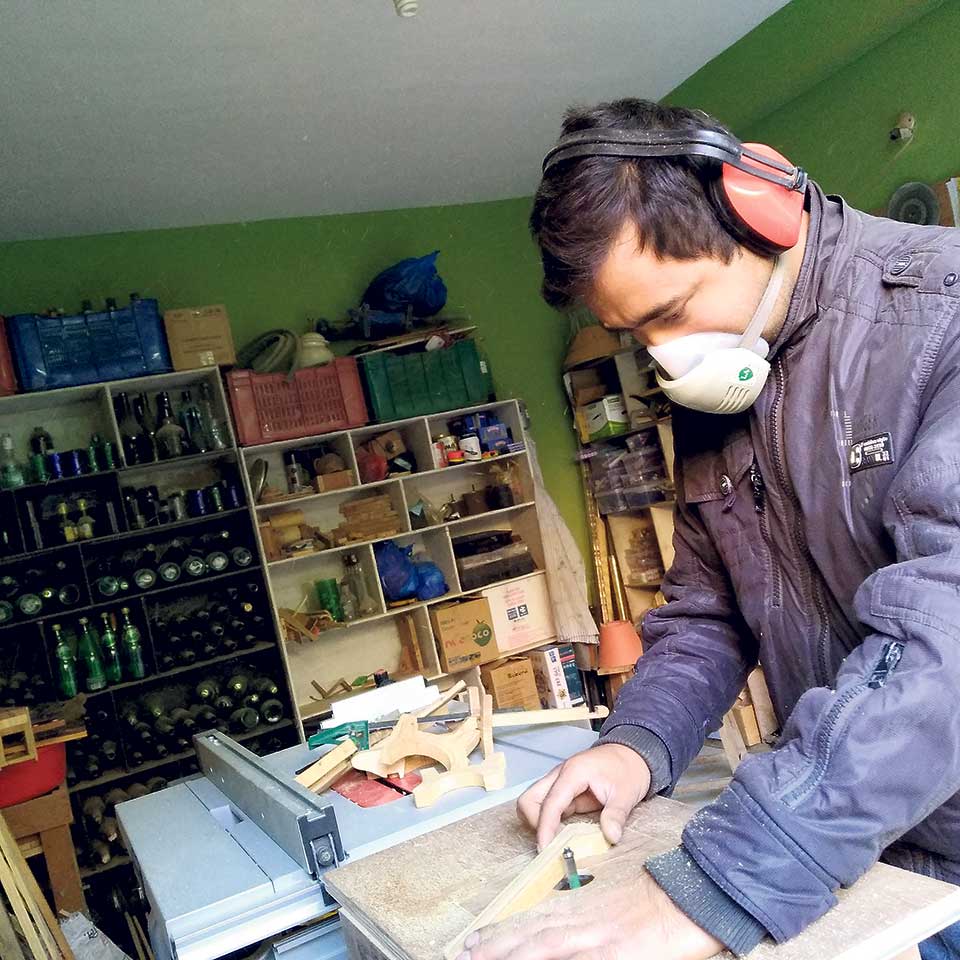SYANGJA, July 19: Who even likes garbage? As soon as people see some garbage, they walk with their noses closed from three miles away, but the Mayor of Waling, Syangja district, Krishna Khand, looks at garbage with admiring eyes. That's why, when he sees a pile of garbage somewhere, he says, "Wow, garbage!" "I see bountiful crops in the rotting garbage," he said, "I see cash in non-perishable garbage."
With his knowledge, Waling Municipality is transforming into a beautiful city. This municipality has presented a model in waste management. Along with waste management, making it a means of income generation is another special feature of Waling. "We have separated the garbage produced from the house into decomposable and non-decomposable," said Khand, "Teaching composting the biodegradable waste at home and segregating non-perishable waste has helped maintain cleanliness of this city.”
Picnic spot at dumping site
"This city is quite conscious about waste management, and even the picnic spot in the waste management center is impressive. Waste management is so clean and straightforward that they have named it the Cleanliness Center.
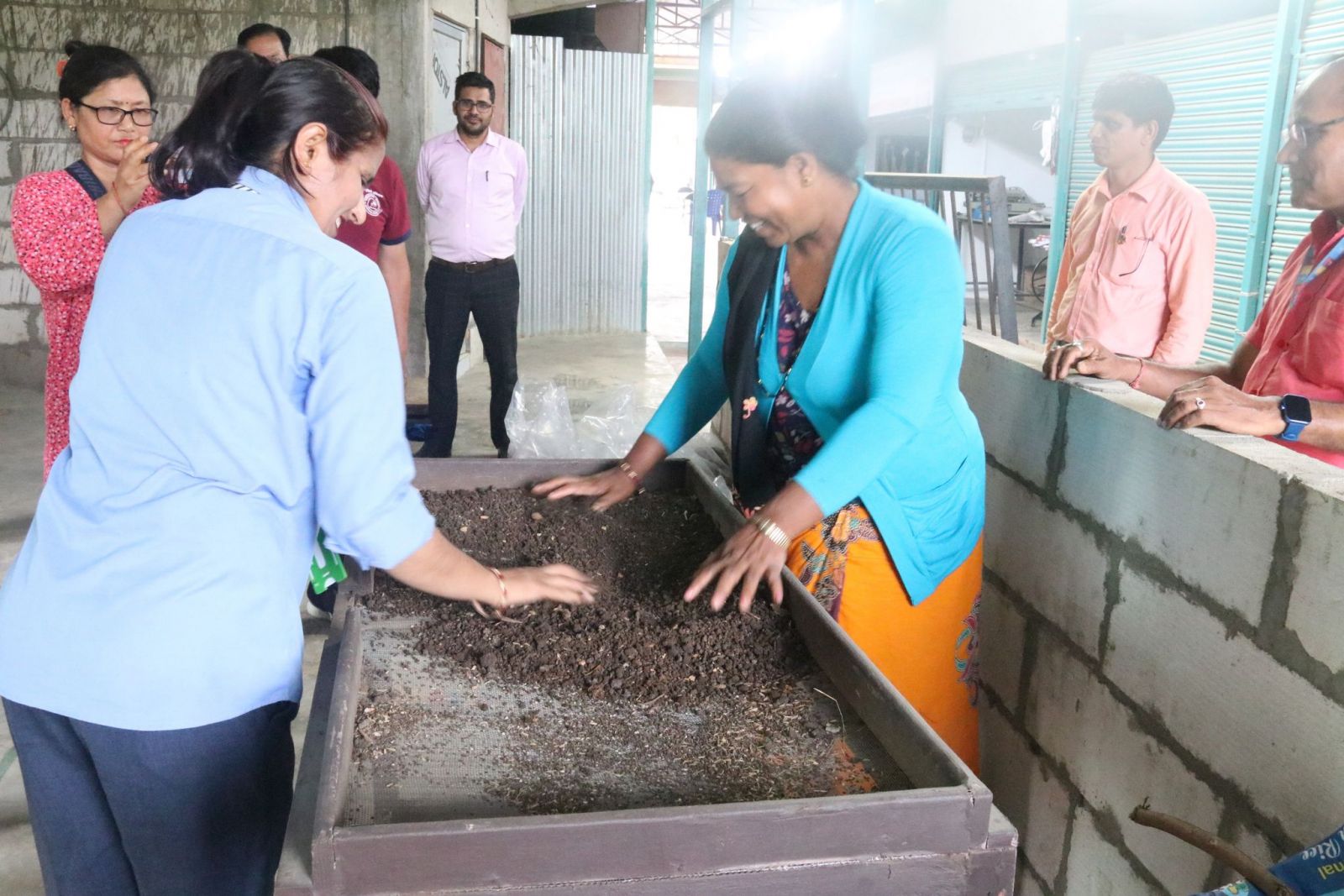 The Municipality has rented a 32-ropani plot from Purnamrit Bhawani Secondary School for the construction of the Cleanliness Center. The Center has essential physical structures for waste management.
The Municipality has rented a 32-ropani plot from Purnamrit Bhawani Secondary School for the construction of the Cleanliness Center. The Center has essential physical structures for waste management.
Here, on one side, the biodegradable items and non-perishable waste like plastic, glass, and steel are kept separated. Surrounding the Center, various types of flowers and ornamental plants have been planted, making the place attractive. The beauty is so captivating that even the waste does not look repulsive anymore. Mayor Krishna Khand said, “People now come here to have picnics, not just to dump garbage. The area near the Andhikhola River has also been nicely adorned.'"
Three injured in leopard attack in Waling

Immediate Past Mayor Dilip Khand has made significant progress in waste management, with noticeable improvements seen in cleanliness and civic discipline since his election in the previous local elections. During his term, Dilip played a pivotal role in waste management, emphasizing the importance of waste management to the residents. He highlighted the adverse effects of littering, educating people on the value of waste as a resource. His motto during his term was 'Recognize waste in the first instance, then manage it.' He discouraged those who littered and even personally picked up litter in his courtyard to set an example. Eventually, the residents began to understand the significance of waste management. Dilip said, “Through the collective effort of the residents, the city has been able to maintain cleanliness. Waste management has played a crucial role in giving the city a shining name.”
In the year 2074, the Ministry of Federal Affairs and Local Development had honored Waling as the best clean municipality. According to the municipality, they had conducted a comprehensive study of cleanliness more than five hundred times for the success story of the municipality.
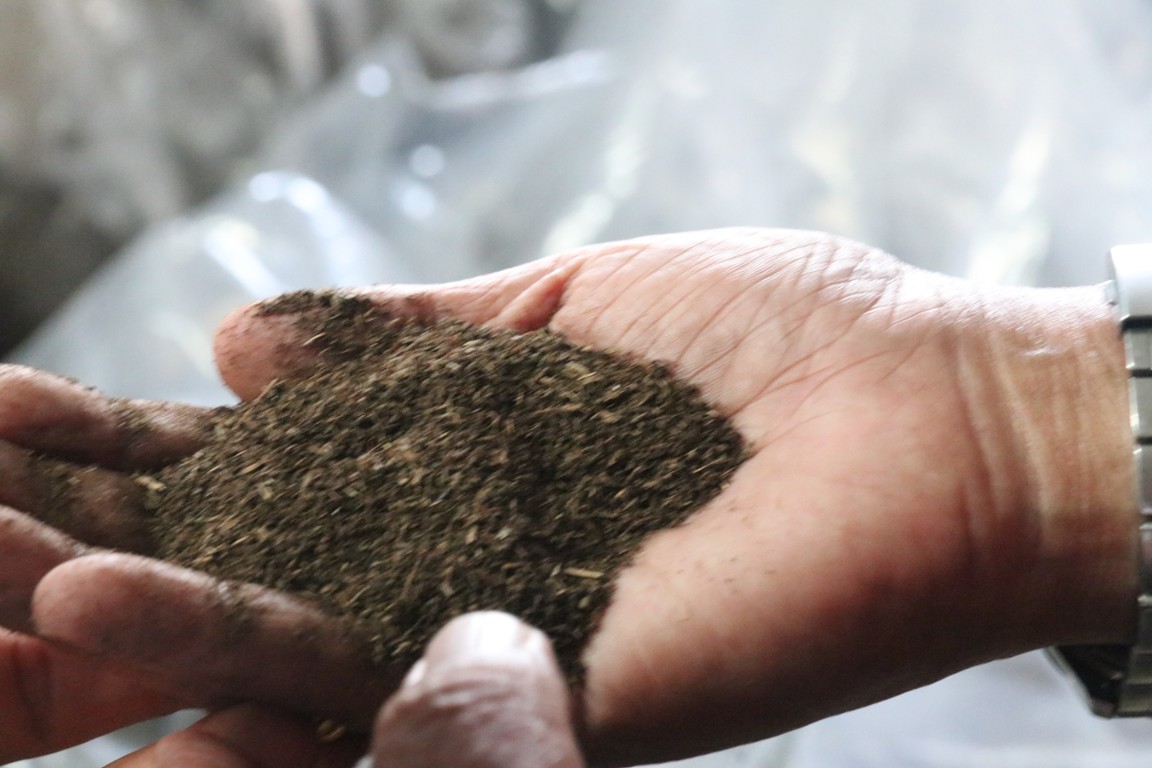 Furthermore, in 2078, with the joint collaboration of Waling Municipality, United Nations Development Programme (UNDP), and Waling Product Holding Multipurpose Cooperative, the 'Promoting Green Recovery Project (PGRP)' was initiated. After the initiation of this project, the public began to understand the significant importance of the large-scale management of biodegradable waste.
Furthermore, in 2078, with the joint collaboration of Waling Municipality, United Nations Development Programme (UNDP), and Waling Product Holding Multipurpose Cooperative, the 'Promoting Green Recovery Project (PGRP)' was initiated. After the initiation of this project, the public began to understand the significant importance of the large-scale management of biodegradable waste.
The project has collaborated in waste collection, categorization, recycling, and disposal as well as supporting initiatives related to organic waste and promoting professional organic farming, creating employment opportunities. The project has been successful in assisting aspiring entrepreneurs and beneficiaries in the field of entrepreneurship, business development, and innovation, enabling them to prosper in the entrepreneurship sector. Mayor Krishna Khand stated, “Composting waste in agriculture has also proven beneficial in not only greening the city but also improving the yield of various crops.”
Waste is non-political
In the past, various politicians made numerous promises regarding waste management, but after Immediate Past Mayor Dilip, who brought significant improvements, was succeeded by the present Mayor Krishna Khand, the fragrance of cleanliness in the city has been consistently felt. In every waste management program, the presence of both the former and current mayors is seen with enthusiasm, which has motivated the residents of the entire municipality. '”The reason for this city being clean lies in waste being non-political,” says local Bikram Pangeni, “Let's hope it remains the same in other places too.”
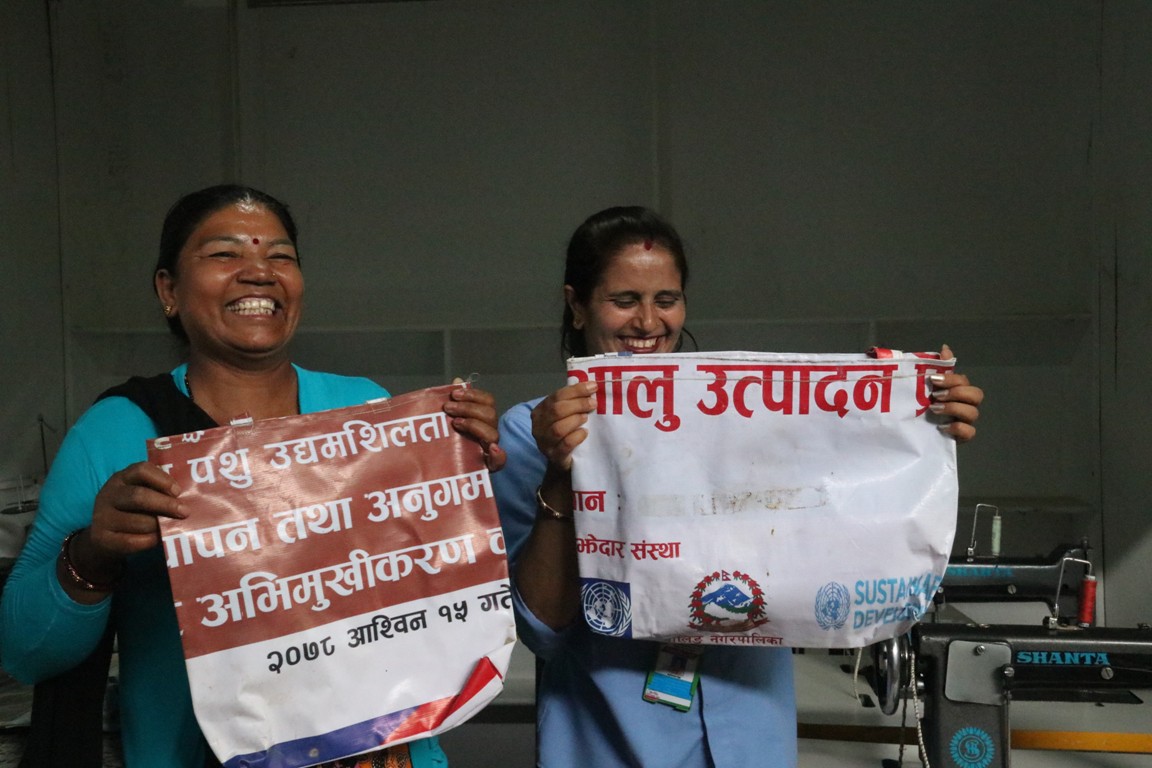 This is how waste is managed
This is how waste is managed
For waste management, the municipality urges residents not to mix kitchen waste, non-rotting waste, and recyclable waste together. They encourage composting of kitchen waste extensively at home. The municipality provides a biogas plant to process organic waste, generating additional revenue. Some of the income is derived from selling recyclable waste, which is sorted into various categories, including plastic layers for recycling.
Non-recyclable plastic is used as fuel and for electricity generation. Additionally, non-rotting waste is sold to Indian traders. The municipality charges a monthly fee of 50 to 500 rupees per household based on the amount and nature of the waste they generate.
They have adopted various methods to prepare compost from non-rotting waste. The municipality also assists in the management of wastewater coming from septic tanks, etc. After the municipality started managing septic tank cleaning on its own, it became easier for locals.
When individuals are unable to pay up to Rs 11,000, the municipality subsidizes the cost, and the sanitation workers come to clean the septic tanks. In this city with a population of 54,000, about 5 tons of waste is produced daily, generating an annual income of around Rs 3 million after expenses. That is why, after returning from the capital Kathmandu, the mayors say that there is not enough garbage in their city. “The more waste generated, the more revenue earned,” said Mayor Krishna Khand, “That’s why I feel fascinated to see garbage.”
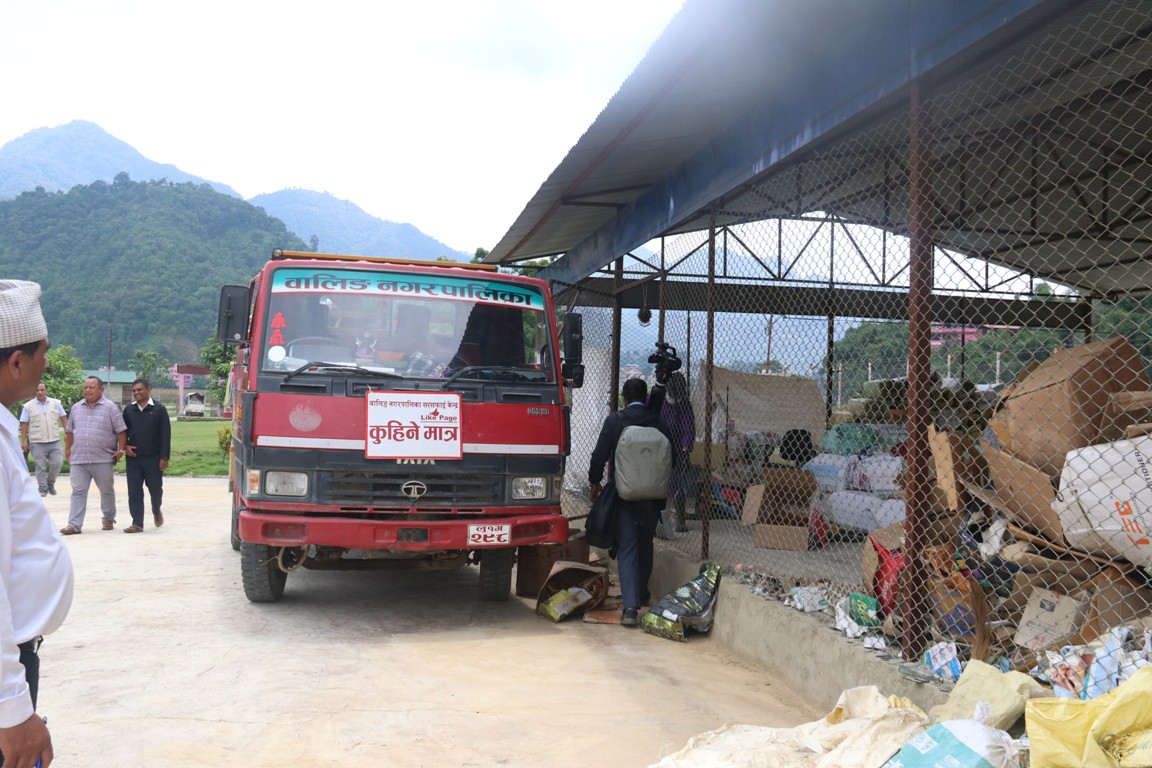 Challenges in waste management
Challenges in waste management
Waling, which has been showing the way to the solution in waste management, is itself overwhelmed by various types of waste. It has observed waste like biodegradable, non-perishable, hazardous, and electronic waste being thrown away from different municipalities and countries, even for other purposes.
"As the market has expanded, garbage too has increased so much that it cannot even be identified," said the current Mayor Dilip Khand. "This has left us worried."
Some waste looks like plastic but isn't actually plastic. Dilip highlighted the problems in their management. He also mentioned the challenges in handling the e-waste (e-waste management) arising due to the increasing use of mobiles, laptops, computers, etc.
He said that there is a lack of awareness about the benefits and harms of these waste types. Hence, he suggested the need for necessary laws to send back waste while importing products from abroad. "Once a company manufactures waste, they should also take moral responsibility for its management," added Dilip, "The waste from their expensive products is terrifying for countries like ours."









